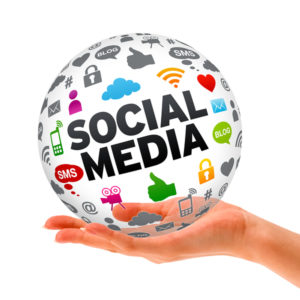Twenty-five years ago, the age of social media began with the launch of sixdegrees.com, a website that allowed users to create custom profiles. At the time, many of us were not aware of what was going on, but this moment marked an important turning point in the way we would communicate and consume information, and for many, subsequently affect their mental health.
Whether or not its original creators intended it, they were handing people a new tool that could be tremendously productive, or on the flipside, disastrously harmful. And it is taking us a while, as humans, to figure out how to best use it. As psychiatrists, we have seen the benefits and drawbacks of social media. We know it has great potential to do good, but we also know that like most things it must be used in moderation.
Today social media is ubiquitous, and an integral part of our daily life. Even health care leaders like myself have accounts, and we spend significant parts of our days in this online world. Whether we are advancing our medical missions or looking at pictures of our families, it is important to be aware of the positive and negative influence using social media can have on our mental health.
According to the American Psychiatric Association’s Healthy Minds Monthly Poll, Americans’ views on social media are mixed. However, a third of Americans say social media does more harm than good to their mental health, and nearly half said that social media had hurt society at large.
Social media is great for participating in conversations on virtually any topic and can help individuals feel a sense of connectedness. Finding support from someone who has had similar experiences can be a big boost to someone who is feeling lonely or otherwise struggling with a mental illness or substance use.
Despite the benefits, social media has some very pronounced drawbacks that can affect mental health, especially after extended use. Online discourse often becomes toxic, which can trigger feelings of depression and anxiety. Overuse of social media has been linked to sleep deprivation, which can lead to depression, memory loss and poor performance at work or school. It is easy to fall into an online “echo chamber,” which can serve to reinforce bad feelings and habits. Disinformation is also widespread on social media, and when left unchecked can have serious repercussions in the real world. Conversations can get heated quickly on social media, leading to vitriol and invective taking the place of good-faith debate.
Here are some mental health tips for all of us as we navigate this world:
—Stay positive, and always remember there is a real person behind the profile or handle when engaging in debates online. Consider your words and avoid engaging in toxic discourse.
—Be conscious of the way what you are seeing on social media is affecting your mood. If what you see makes you feel envious, stressed or depressed, take a break, and use the break to engage in exercise, which will benefit your physical health and boost your mood.
—Remember that the online world is no substitute for real life. While online friendships can be very rewarding, it is also important to maintain real world connections with friends, family and neighbors. A real-life connection to your community can help you to center yourself and support your mental health.
Some of us are old enough to remember when television prompted great fears of social decay. While there were definite effects of television on American life, some positive and some negative, ultimately as consumers we had to adapt to the technology and make rules for ourselves around its usage. Social media is more complicated than that and its purveyors profit off our involvement, in some cases to the detriment of the discourse. And social media companies must own the responsibility for any damages their services have done.
Over the next 25 years, psychiatrists and the mental health community need to be leaders as we come to grips as a society with how new technologies interface with and affect our daily lives, health and well-being. I believe that if we practice mindfulness and moderation — and leading by example where we disagree without being disagreeable — we can leverage the potential of social media to be a force for good.

